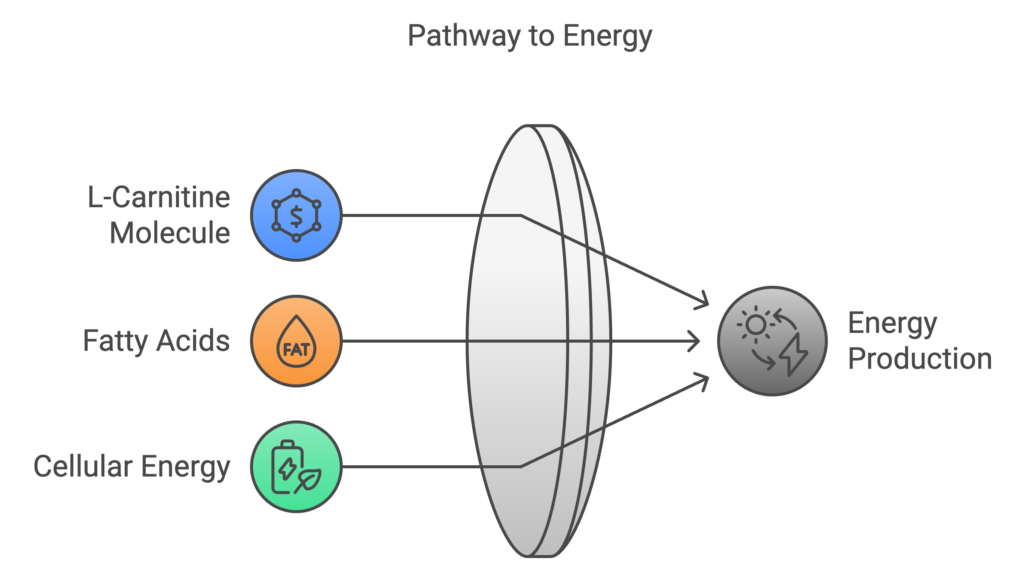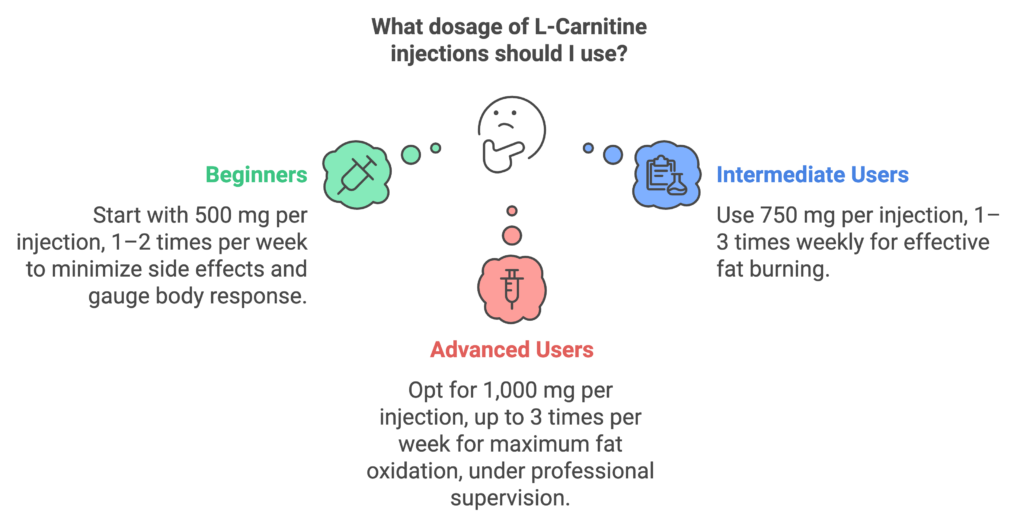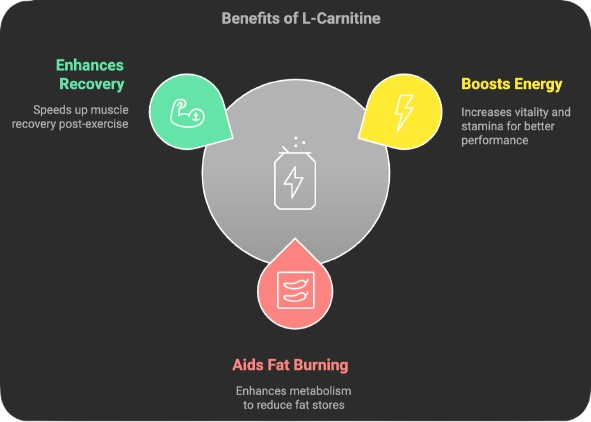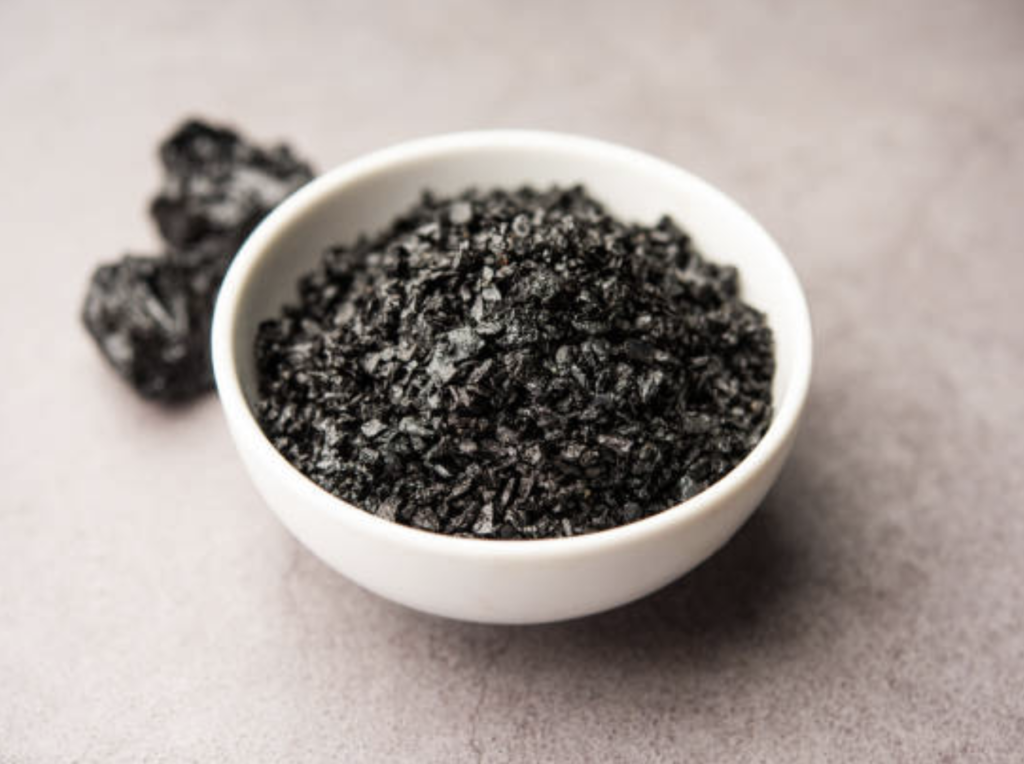L-Carnitine Injection Dosage for Weight Loss: A Complete Guide
When it comes to weight loss supplements, L-Carnitine injections have gained significant attention for their potential to aid in fat burning and energy production. But how effective are they, and what’s the ideal L-Carnitine injection dosage for achieving results? In this comprehensive guide, we’ll dive into the science behind L-Carnitine injections, how they work for weight loss, recommended dosages, and a comparison with oral supplements to help you make an informed decision on using L-Carnitine injections in your weight loss journey.
What is L-Carnitine?

L-Carnitine is a naturally occurring amino acid derivative that plays a crucial role in converting fat into energy. Synthesized in the liver and kidneys, it is stored in muscles, the brain, and the heart. This compound assists in transporting fatty acids to the mitochondria of cells, where the fat is converted into usable energy.
While L-Carnitine can be obtained from food sources like red meat, fish, and dairy, some people use L-Carnitine supplements or injections to achieve higher levels, aiming to enhance fat burning and boost athletic performance.
How Do L-Carnitine Injections Work for Weight Loss?
When injected, L-Carnitine enters the bloodstream directly, bypassing the digestive system. This results in quicker absorption and potentially more effective results compared to oral supplements. Once in the bloodstream, L-Carnitine works by:
- Enhancing Fat Metabolism: L-Carnitine transports fatty acids to mitochondria, where fat is oxidized and converted into energy.
- Boosting Energy Levels: By converting stored fat into energy, L-Carnitine injections can increase stamina, which may help you stay active and committed to a weight loss routine.
- Reducing Muscle Soreness: Studies show that L-Carnitine can help decrease muscle soreness, allowing for more consistent physical activity and reduced recovery times between workouts.
L-Carnitine Injection Dosage for Weight Loss

Recommended Dosage for Beginners, Intermediate, and Advanced Users
Determining the right dosage is essential to balance effectiveness with safety. Dosages for L-Carnitine injections can vary depending on factors like age, body weight, metabolic rate, and health goals, but typical dosages for weight loss range between 500 to 1,000 mg per injection.
- Beginners: Those new to L-Carnitine injections typically start with 500 mg per injection, administered 1–2 times per week. This dosage allows beginners to see how their body responds to the supplement while minimizing the risk of side effects.
- Intermediate Users: For those who have been using L-Carnitine injections for some time, a dosage of 750 mg per injection can be effective. This dosage is also typically administered 1–3 times weekly.
- Advanced Users: Experienced users looking to maximize fat-burning effects often use 1,000 mg per injection up to 3 times per week. This higher dosage can boost fat oxidation and energy but should be used with caution and under professional supervision.
Note: Always consult with a healthcare provider before starting or increasing any injection regimen to ensure it’s safe and tailored to your individual health profile.
How Long to Use L-Carnitine Injections
Since L-Carnitine injections aim to support fat metabolism and energy levels, they can be used for several months in alignment with weight loss goals. However, taking periodic breaks, such as a 1–2 week hiatus every 8–12 weeks, can help prevent potential dependency or diminishing effects, ensuring that your body continues to respond positively to the injections.
Best Practices for Administering L-Carnitine Injections
- Timing: L-Carnitine injections are most effective when taken 30–60 minutes before a workout. This timing allows the compound to maximize its fat-burning effects during exercise.
- Injection Sites: Common injection sites include the abdomen, thighs, and deltoids. Rotating injection sites can help prevent skin irritation.
- Hydration: Drink plenty of water before and after injections to support kidney function and ensure optimal metabolism.
- Balanced Diet: Combining L-Carnitine injections with a diet rich in lean proteins, whole grains, and vegetables can support weight loss goals.
Comparing L-Carnitine Injections to Oral Supplements (Tablets)
L-Carnitine is available in several forms, with injections and oral tablets being the most common. Here’s a comparison to help you decide which form might be better for your weight loss journey.
Absorption and Effectiveness
- Injections: L-Carnitine injections bypass the digestive system and go directly into the bloodstream, allowing for quick absorption and higher bioavailability. This means a greater amount of L-Carnitine reaches the cells where it can actively facilitate fat burning.
- Tablets: L-Carnitine tablets must pass through the digestive system, which can delay absorption and reduce bioavailability. Digestive enzymes may also break down some of the compound, resulting in lower effectiveness compared to injections.
Dosage Precision
- Injections: Each injection is administered with a specific dose, providing precise control over the amount of L-Carnitine absorbed. This precision can be useful in tailoring dosages based on individual weight loss and fitness goals.
- Tablets: Tablets or capsules typically come in fixed dosages, which can limit flexibility. Achieving a specific dose may require taking multiple tablets, which can be less convenient.
Onset of Effects
- Injections: Since injections are absorbed quickly into the bloodstream, users may feel the energy-boosting and fat-burning effects within 30–60 minutes. This rapid onset is beneficial for pre-workout timing.
- Tablets: Tablets take longer to digest, with effects usually becoming noticeable after 1–2 hours. This delayed onset may not be ideal for those seeking immediate pre-workout benefits.
Cost Considerations
- Injections: Due to the direct delivery method and potentially higher bioavailability, injections are often more expensive than tablets. Additionally, injections may require professional administration, adding to the cost.
- Tablets: Tablets are generally more affordable and convenient, as they can be taken at home without professional help. For those on a budget, tablets offer a cost-effective way to supplement with L-Carnitine.
| Feature | L-Carnitine Injections | L-Carnitine Tablets |
|---|---|---|
| Absorption | High bioavailability; quick absorption | Lower bioavailability; slower absorption |
| Dosage Flexibility | Precise, adjustable per injection | Fixed dosages |
| Onset of Effects | Fast (30-60 minutes) | Delayed (1–2 hours) |
| Cost | Higher, requires administration | Lower, easily self-administered |
Potential Benefits of L-Carnitine Injections for Weight Loss

L-Carnitine injections offer several advantages beyond fat burning, including:
- Accelerated Fat Loss: By enhancing fat oxidation, L-Carnitine injections can help reduce stored fat, especially when combined with exercise. Combine Lipotropic Shots for weight loss with L-Carnitine for effective fat burning.
- Improved Energy Levels: Users report greater endurance and energy, aiding in longer, more effective workout sessions.
- Enhanced Recovery: L-Carnitine helps reduce muscle soreness, supporting more frequent workouts with faster recovery.
Frequently Asked Questions
1. Are L-Carnitine injections safe?
L-carnitine injection dosage is actually the key to this question. When used within the recommended dosage, L-Carnitine injections are generally considered safe. However, some people may experience mild side effects, such as nausea, headaches, or injection site reactions.
2. Can L-Carnitine injections help me lose weight without exercise?
While L-Carnitine injections can help increase energy and support fat metabolism, it is most effective when combined with regular exercise and a balanced diet.
3. How often should I take L-Carnitine injections for weight loss?
L-carnitine injection dosage: Typical recommendations are usually around 1 to 3 injections per week, but consulting a healthcare provider can help determine the best frequency based on individual needs.
Side Effects of L-Carnitine Injections
Although generally well-tolerated, some people may experience mild side effects:
- Nausea: Higher doses may cause mild nausea in some users.
- Headaches: Occasionally reported, typically mild.
- Injection Site Irritation: Some users experience redness or swelling.
To minimize these effects, follow recommended dosages and rotate injection sites. If any side effects persist, consult a healthcare provider.
Choosing the Right L-Carnitine Product
When selecting an L-Carnitine product, consider the following:
- Reputable Brands: Choose brands with positive reviews and proven quality.
- Pure L-Carnitine: For injections, pure L-Carnitine is generally preferred for weight loss effects.
- Third-Party Tested: Ensure the product has undergone third-party testing for quality and safety.
Conclusion
L-Carnitine injections offer a promising avenue for weight loss by enhancing fat metabolism and supporting increased energy levels. When used at the appropriate dosage, L-Carnitine can be a valuable addition to a well-rounded weight loss plan, especially when paired with regular exercise and a balanced diet.
Before starting any L-Carnitine injection regimen, consult with a healthcare provider to ensure safety and optimize results. Whether you’re just beginning your weight loss journey or looking to enhance existing efforts, L-Carnitine injections can help you reach your goals. Stay consistent, follow the guidelines, and enjoy the benefits of this powerful amino acid derivative.
Explore the benefits of B12 Shots for weight loss alongside L-Carnitine.


